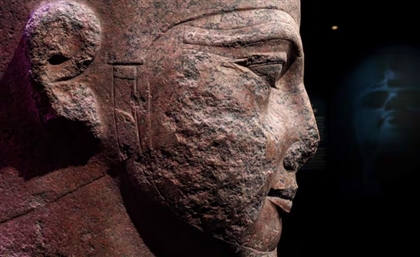The White Tiger: RAWR
Anam Sufi discusses Aravind Adiga's Booker Prize winning debut novel, The White Tiger, explaining the titillating experience of hearing the inner trappings of a psychopath.

The White Tiger is the first novel written by Indian author, Aravind Adiga. Winner of the 40th Man Booker Prize, the story epitomises the zeal of contemporary language, honouring dark and caustic humour to address the inherent class struggle that exists in India.
Following the life of Balram Halwai, a village boy who is born to a life of servitude and a low caste, the story does not progress in the clichéd and classic manner whereby the economic ascension of the protagonist is framed in a context of hard work and determination. Determination surely exists, but what the reader gains insight into is the dark trappings and corner-cutting that Balram capitalises on, to further his position in society. His journey from a being a sweet-maker, to becoming a chauffer, and finally to becoming a successful entrepreneur, is lined with incidents of robbery and murder.
The novel highlights themes that are part of the everyday narrative in India, including, religion, caste, loyalty, corruption, poverty, and the dilemma of whether bad deeds justify the means to an end. Ultimately, Balram functions as a catalyst through which Adiga passes a social commentary on the dynamic nature of Indian society. In the words of the author himself, his novel “attempts to catch the voice of the men you meet as you travel through India –the voice of the colossal underclass.”

Being Pakistani, there was a lot that I could relate to in this novel. This is not owed to the geographic proximity of both countries, rather the very localised use of voice, as fit to match that of a South Asian who finds himself in the lower rungs of society. Adiga’s appropriation of Balram’s diction and tone is fine-tuned to match those of the lower classes, effectively dousing the novel with an admirable sense of authenticity. Moreover, what I especially appreciated about this read was the Machiavellian characteristics that the protagonist is imbued with. His unscrupulous actions, and blind adherence to a desire for power and wealth is exhibited through monologues and inner thoughts that leave the reader feeling incredibly unnerved; like witnessing the conscience of a psychopath, literally.
What I valued most however, was the refreshing portrayal of the lower classes as something other than weak, decrepit, and beaten individuals who are victims of oppression and circumstance on all fronts. It’s as though Adiga thought, ‘fuck that, away with sentimentality, the working class is the class of power.’ I’m not making this up, the author himself put it, “[I] "wanted to do so without sentimentality or portraying them as mirthless, humourless weaklings as they are usually."
All in all, I greatly enjoyed the raw quality of this book. It was full of suspense, conflicting attitudes towards the protagonist, and a scintillating socio-political undertone that solidified Balram as a symbol of India’s future.
- Previous Article I Got Banged!
- Next Article Nomades Land
























